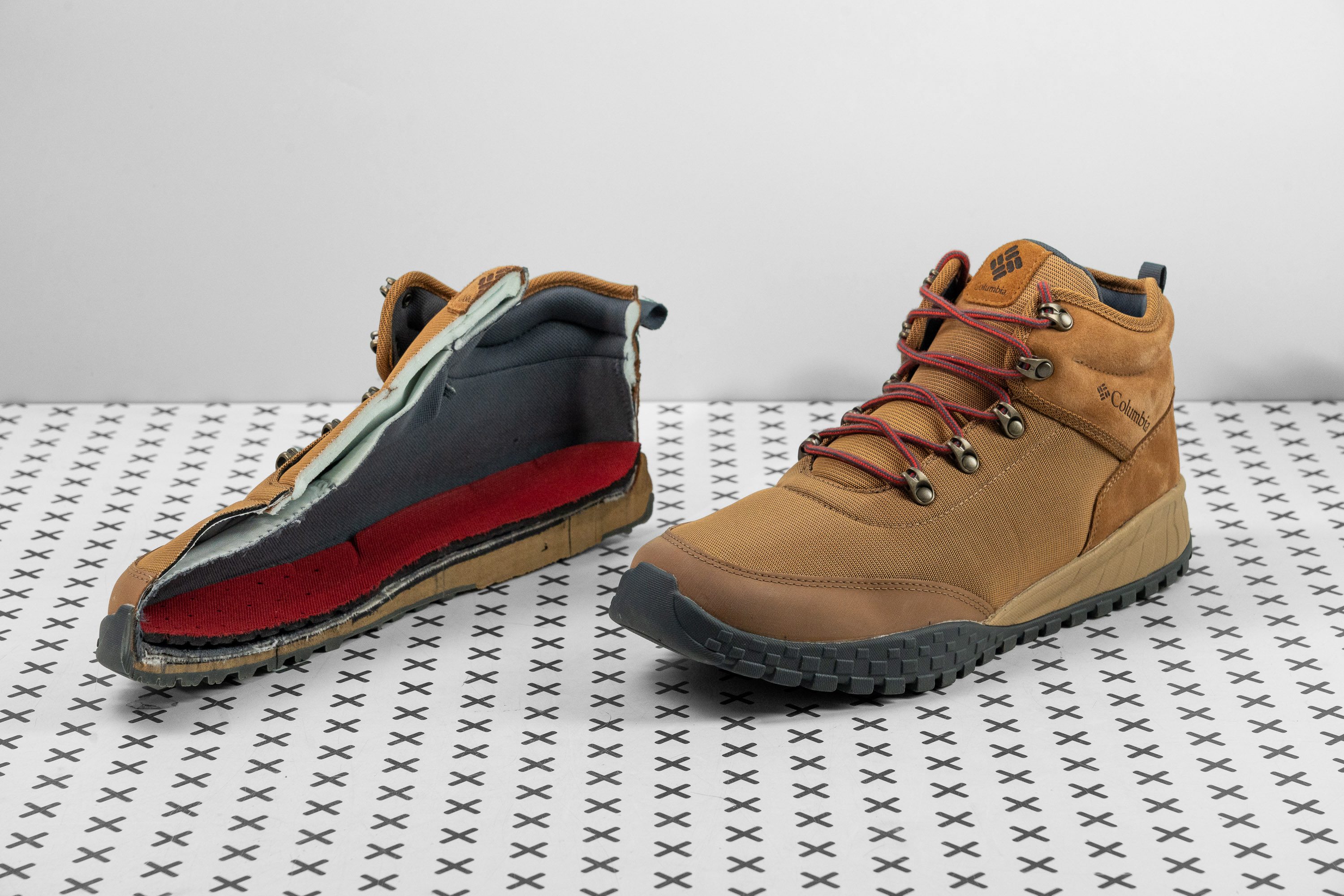Our verdict
- Top pick in best Columbia hiking boots
Pros
- Remarkably light
- Head-turning looks
- Excellent waterproofing
- Good grip on mild terrain
- Hard-wearing outsole
- Soft cushioning
- Flexible design
- Fits as expected
Cons
- Not a true hiking boot
- Lacks support and stability
Audience verdict
Comparison
The most similar hiking boots compared
+ + Add a shoe | |||||
|---|---|---|---|---|---|
| Audience score | 80 Good! | 89 Great! | 85 Great! | 87 Great! | |
| Price | $110 | $200 | $170 | $130 | |
| Trail terrain | Light | LightModerate | Moderate | Light | |
| Shock absorption | High | Low | - | Moderate | |
| Energy return | Moderate | Low | - | Moderate | |
| Weight lab Weight brand | 18 oz / 509g 15 oz / 425g | 17 oz / 482g 17 oz / 482g | 18.2 oz / 515g 17.4 oz / 493g | 15.5 oz / 439g 15.7 oz / 444g | |
| Lightweight | ✗ | ✓ | ✗ | ✓ | |
| Breathability | Warm | Warm | Warm | Warm | |
| Use | Light HikingUrban hikingBeginners | Day HikingLight HikingUrban hiking | BackpackingDay HikingLight Hiking | Light HikingUrban hikingBeginners | |
| Orthotic friendly | ✓ | ✓ | ✓ | ✓ | |
| Drop lab | 11.5 mm | 13.5 mm | 12.9 mm | 12.3 mm | |
| Size | True to size | True to size | True to size | True to size | |
| Midsole softness | Soft | Firm | Firm | Soft | |
| Difference in midsole softness in cold | Big | Small | Small | Normal | |
| Heel counter stiffness | Flexible | Stiff | Flexible | Flexible | |
| Stiffness | Flexible | Moderate | Moderate | Flexible | |
| Outsole hardness | Hard | Very hard | Soft | Average | |
| Waterproofing | Waterproof | Waterproof | Waterproof | Waterproof | |
| Material | SuedeTextile | Suede | Leather | Textile | |
| Season | Winter | Winter | Winter | Winter | |
| Toebox durability | - | Decent | Good | Bad | |
| Heel padding durability | - | Decent | Decent | Decent | |
| Outsole durability | - | Decent | Bad | Decent | |
| Width / fit | Wide | Medium | Wide | Narrow | |
| Toebox width | Wide | Medium | Wide | Narrow | |
| Lug depth | 3.5 mm | 3.7 mm | 4.2 mm | 3.0 mm | |
| Heel stack lab | 30.9 mm | 32.7 mm | 31.1 mm | 31.5 mm | |
| Forefoot | 19.4 mm | 19.2 mm | 18.2 mm | 19.2 mm | |
| Widths available | Normal | Normal | NormalWide | Normal | |
| Technology | - | Ortholite | Ortholite | - | |
| Cut | Mid cut | Mid cut | Mid cut | Mid cut | |
| Removable insole | ✓ | ✓ | ✓ | ✓ | |
| Ranking | #36 Bottom 12% | #8 Top 20% | #25 Bottom 39% | #17 Top 42% | |
| Popularity | #22 Bottom 46% | #29 Bottom 29% | #30 Bottom 26% | #23 Bottom 43% |
Who should buy
The Fairbanks Mid is a men's hiking boot from Columbia. We think that it is a great pick for the guys who:
- need a city-to-backcountry boot
- prefer to hike and roam in style (it gives off an '80s boot vibe similar to the Timberland Sprint Trekker)
- want a waterproof hiking boot that is light on the feet
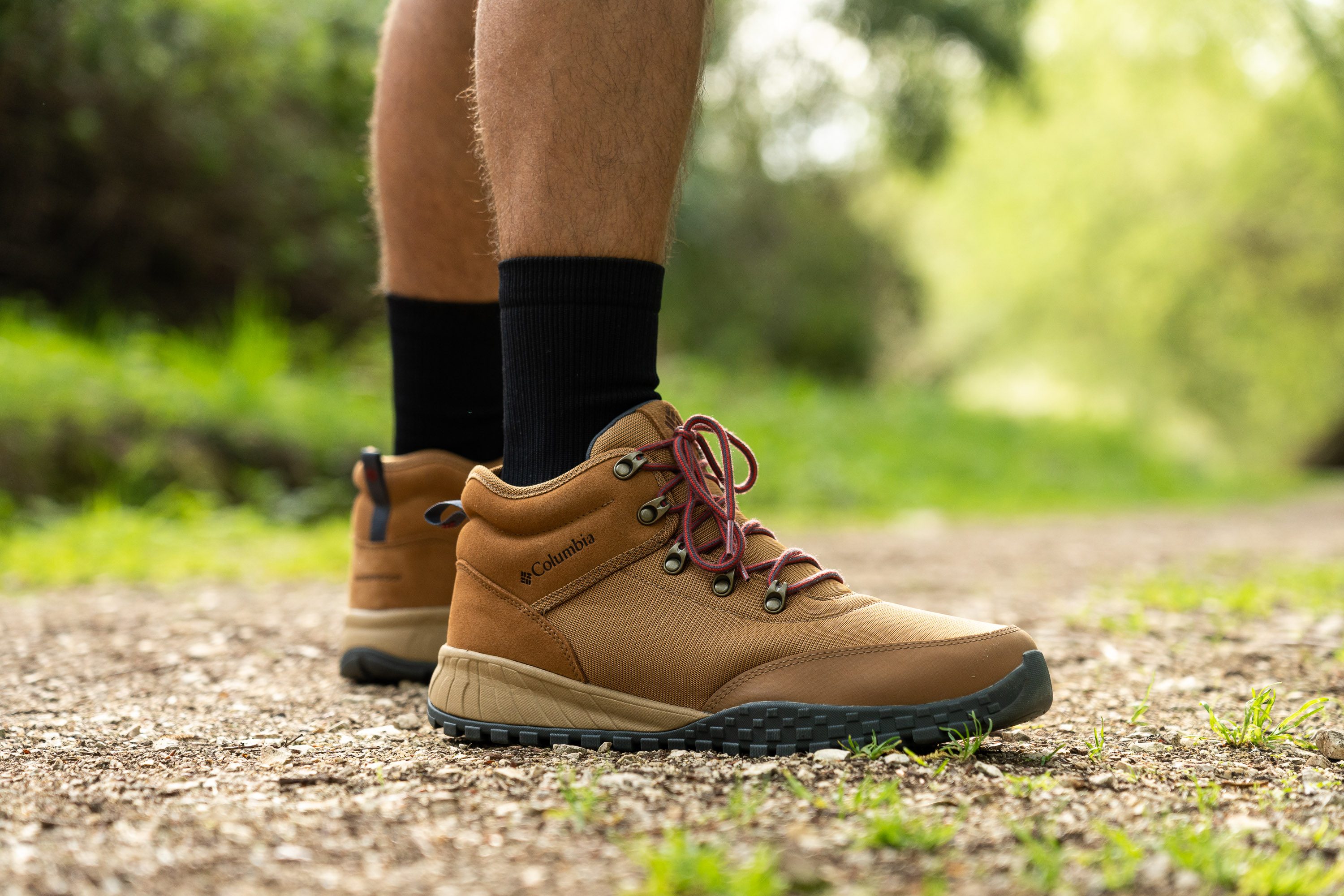
Who should NOT buy
This Columbia boot is ideal for more casual outdoor adventures but is no good for demanding hikes. If you need truly functional footwear for multi-day trips, steep inclines, and challenging terrain, we recommend the Salomon X Ultra 4 Mid GTX instead.
And if you don't hike in mud, river crossings, or downpours on a daily basis, we suggest that you consider a non-waterproof boot instead. The Timberland Euro Hiker, for example, allows the foot to breathe while keeping it protected from shallow puddles and drizzles.
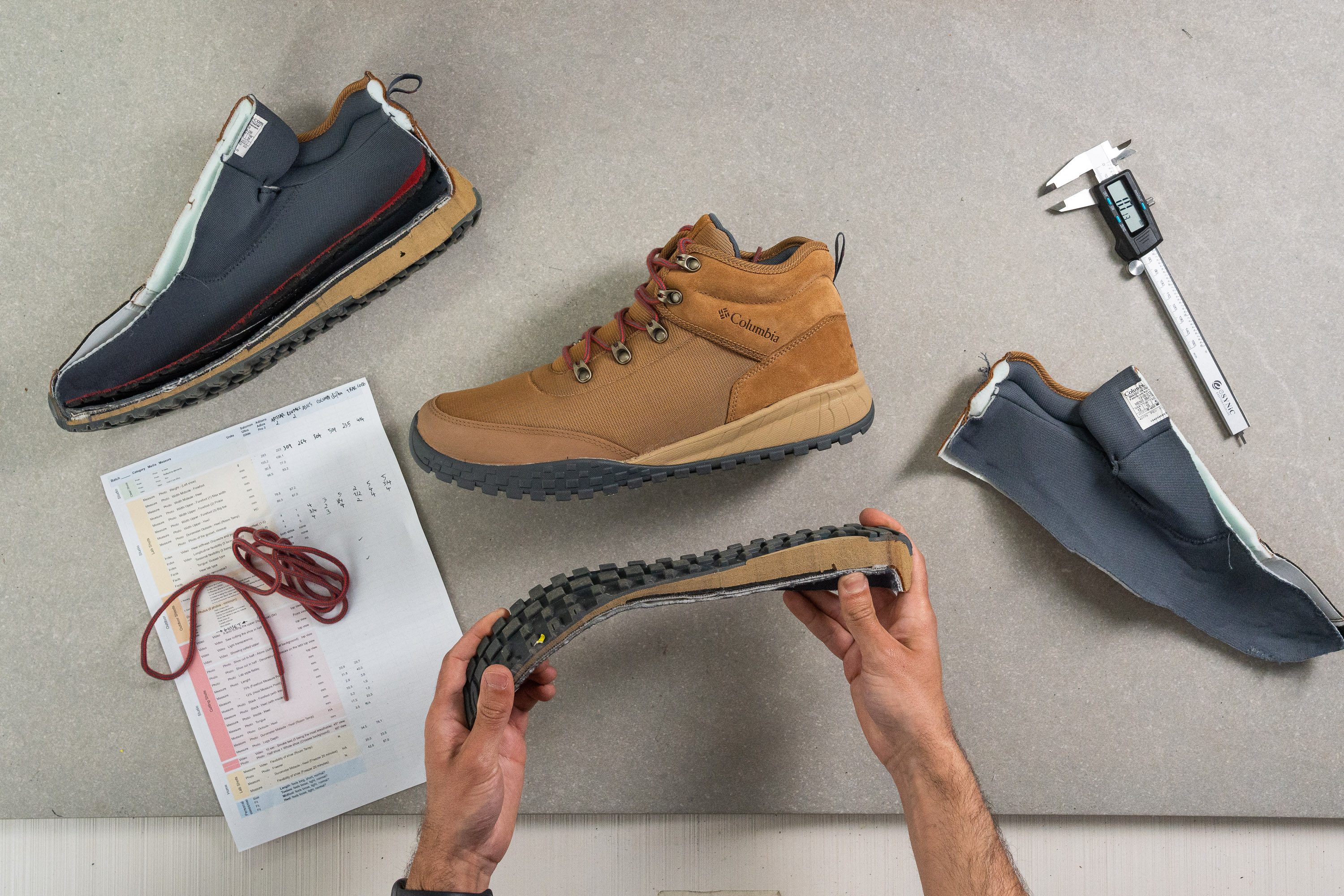
Cushioning
Shock absorption
The Fairbanks Mid is not meant for extended hiking endeavors but it offers sufficient cushioning for light hikes and town-to-trail situations.
Measuring its shock absorption at 102 SA, we found this Columbia boot quite protective and comfortable despite its below-average stack height.
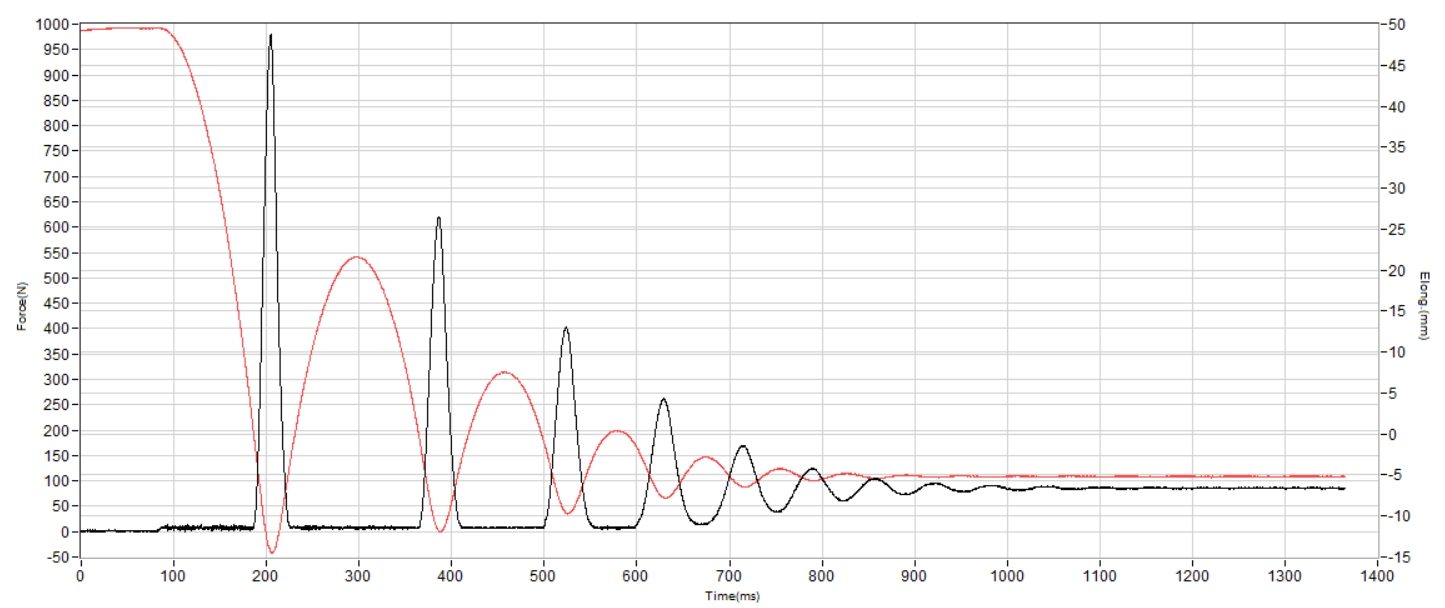
| Fairbanks Mid | 102 SA |
| Average | 93 SA |
Energy return
The Fairbanks Mid also comes with a touch of bounce that makes the ride more fun and lively. It is one of the features that make this boot feel more like a casual sneaker.
| Fairbanks Mid | 52.2% |
| Average | 50.5% |
Heel stack
When it comes to cushioning, the Fairbanks Mid features a rather minimal and grounded platform.
Using a caliper, we measured its heel stack height at 30.9 mm. That's half a centimeter lower than average!
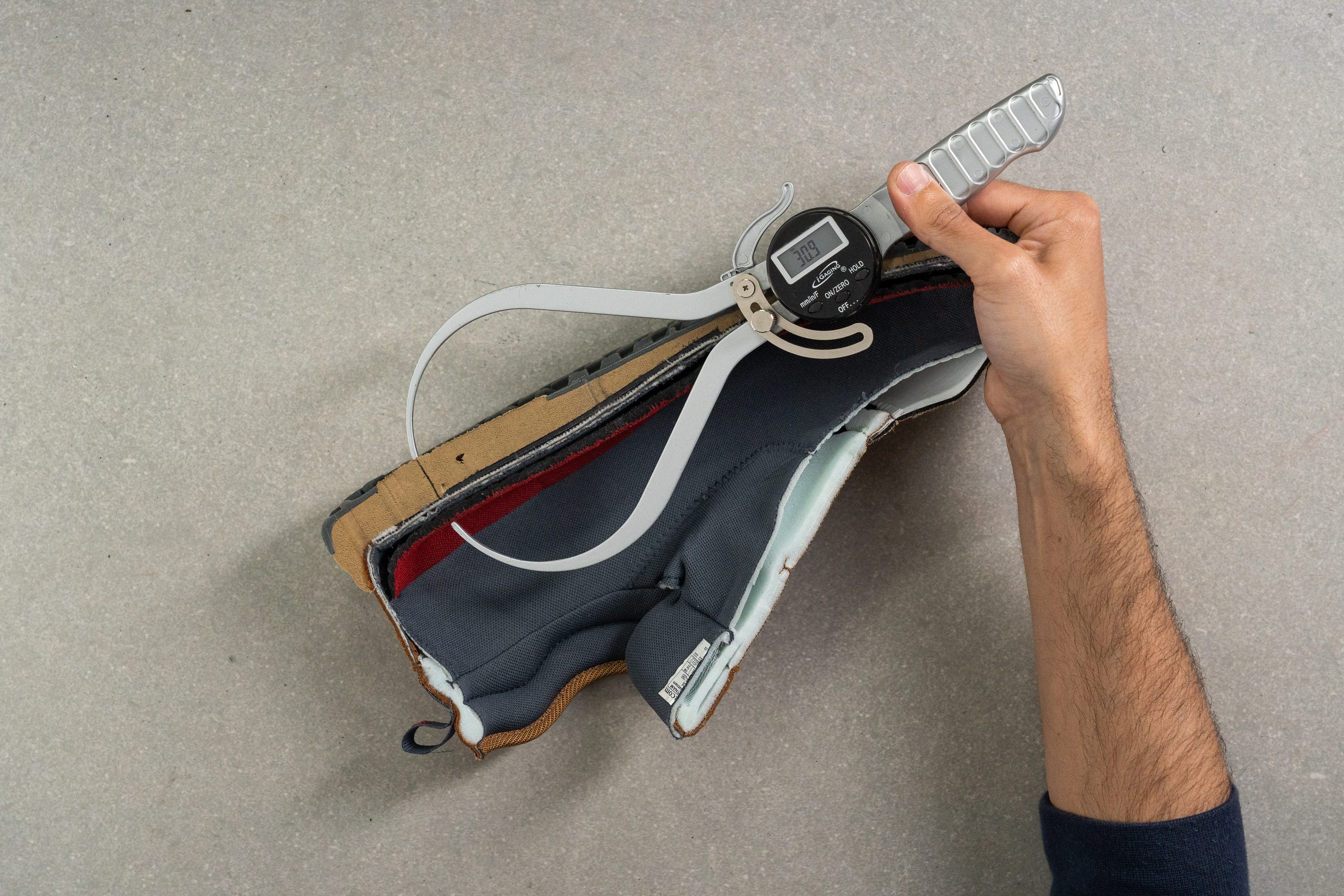
| Fairbanks Mid | 30.9 mm |
| Average | 36.3 mm |
Forefoot stack
Based on our measurement, your toes are separated from the ground by a mere 19.4 mm of sole! That's one of the thinnest forefoot stacks we've seen on hiking boots.
A no-no for long distances!
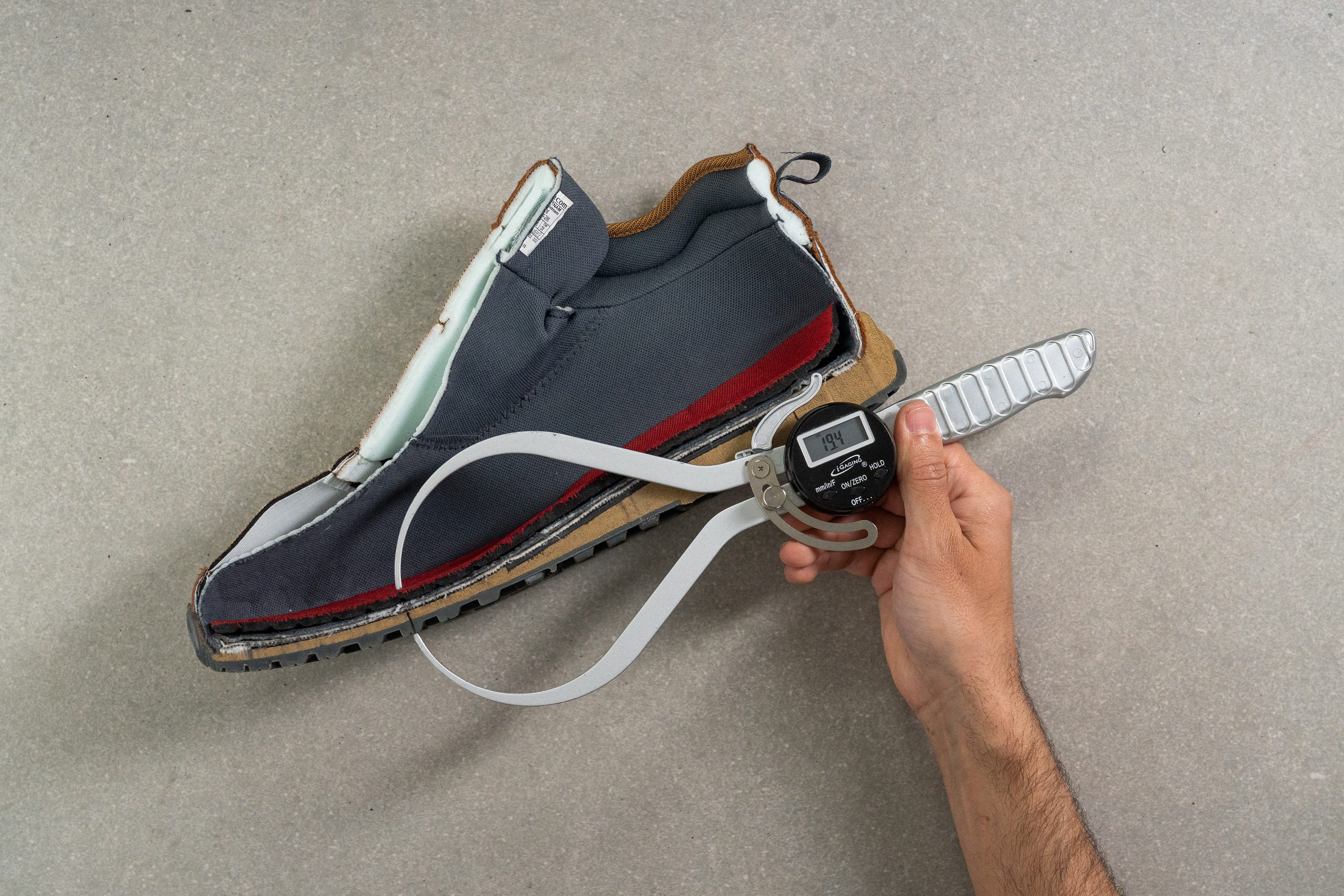
| Fairbanks Mid | 19.4 mm |
| Average | 23.0 mm |
Drop
In the Columbia Fairbanks Mid, your heel is elevated above the toes by 11.5 mm. That's a standard drop for a hiking boot.
You need more cushioning in the heel to protect it from the impact while the forefoot remains more flexible.
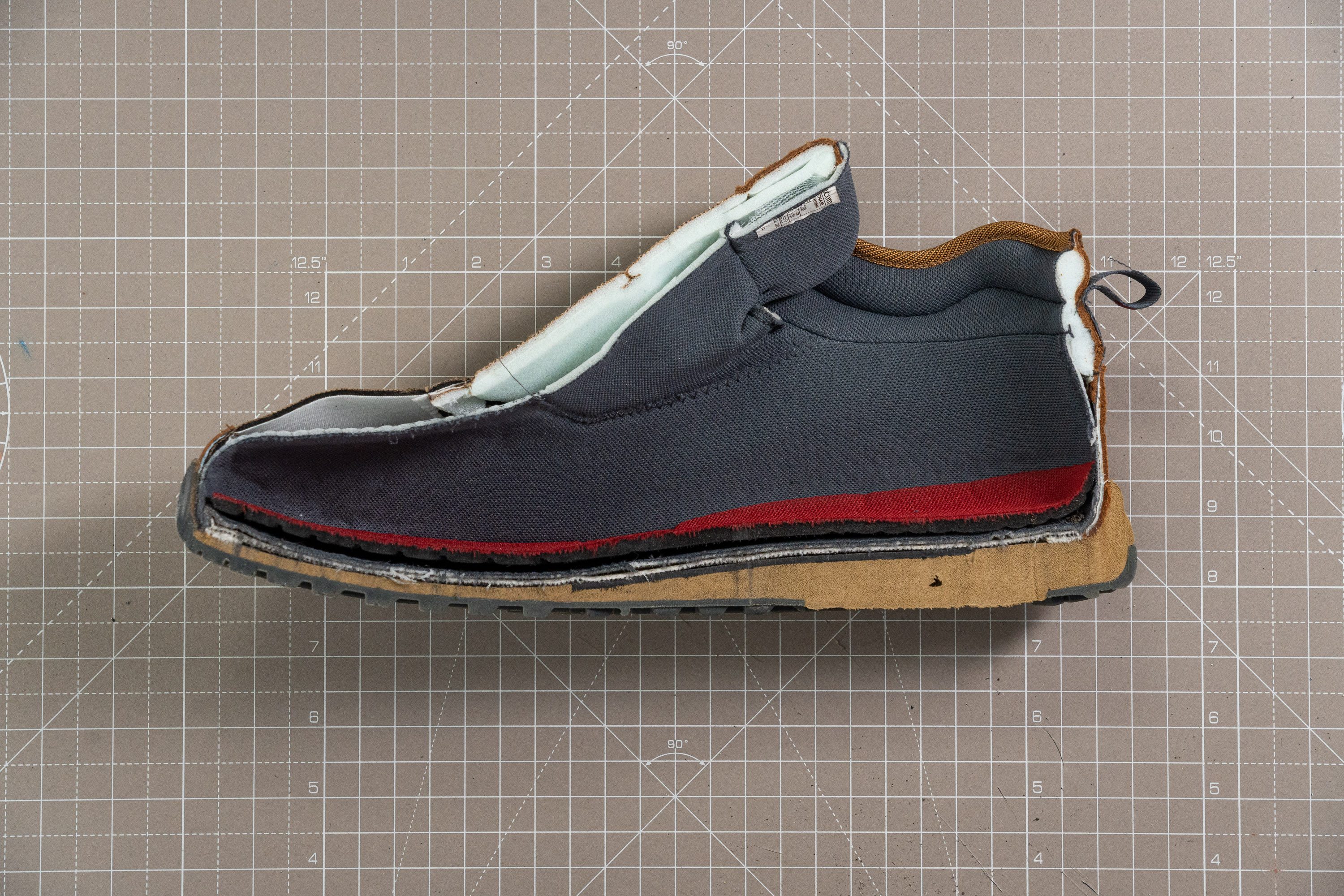
| Fairbanks Mid | 11.5 mm |
| Average | 13.3 mm |
Midsole softness
We expected minimal cushioning from this Columbia boot and were left surprised by its softness!
Measuring the boot's primary foam, our durometer showed a reading of 19.9 HA. That is a whole 41% softer than hiking boots on average!
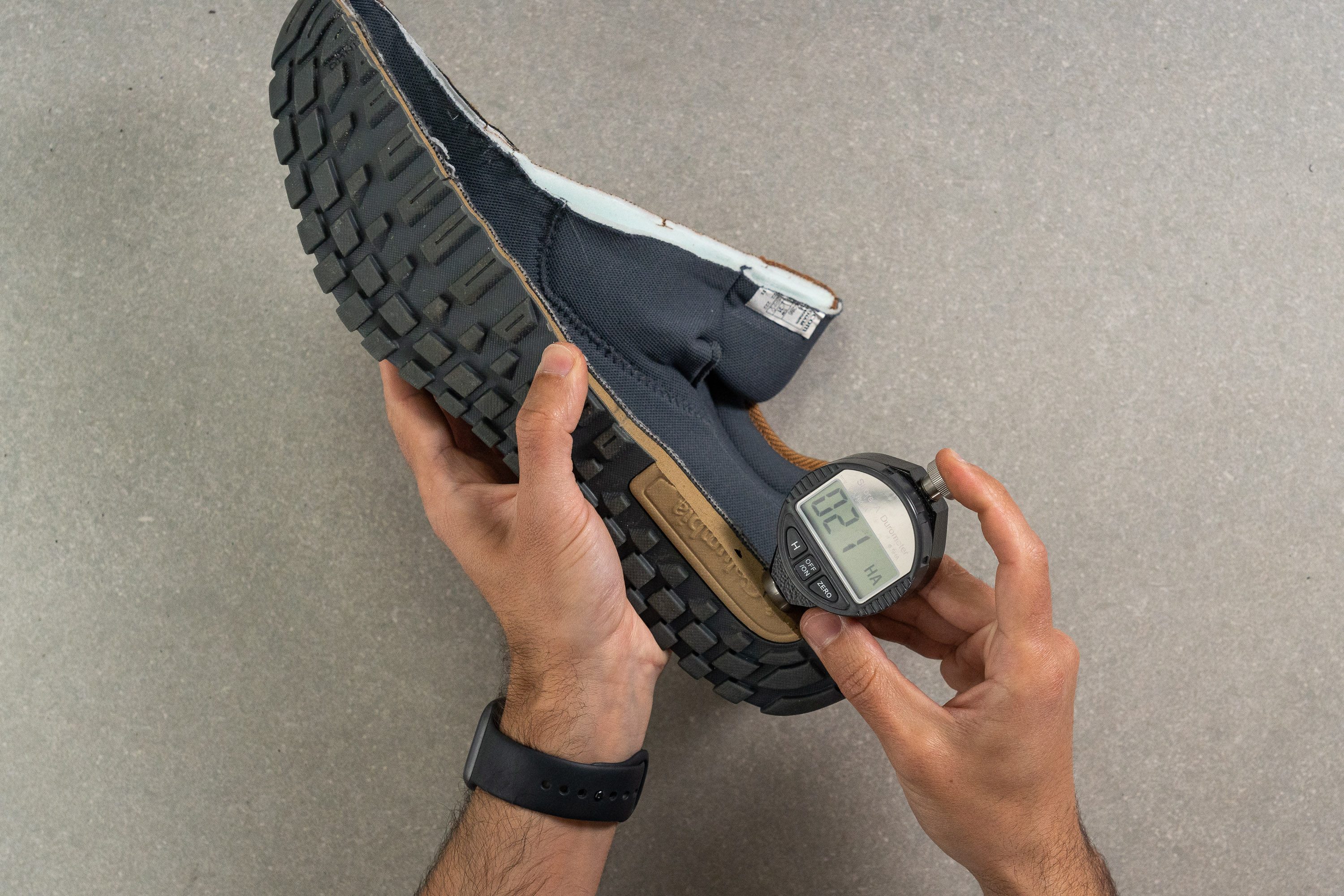
Generally, you want a slightly firmer boot to keep you and your load supported throughout the hike. And for that reason, we think that it's better to use the Fairbanks Mid for hard-packed trails and semi-paved roads, where soft ride is more appreciated.
| Fairbanks Mid | 19.9 HA |
| Average | 28.4 HA |
Size and fit
Size
Columbia Fairbanks Mid fits true to size (21 votes).
Traction / Grip
Lug depth
Measuring the lugs of the Columbia Fairbanks Mid, we found them to be a little shallower than average. At 3.5 mm, these treads are not as toothy as most.
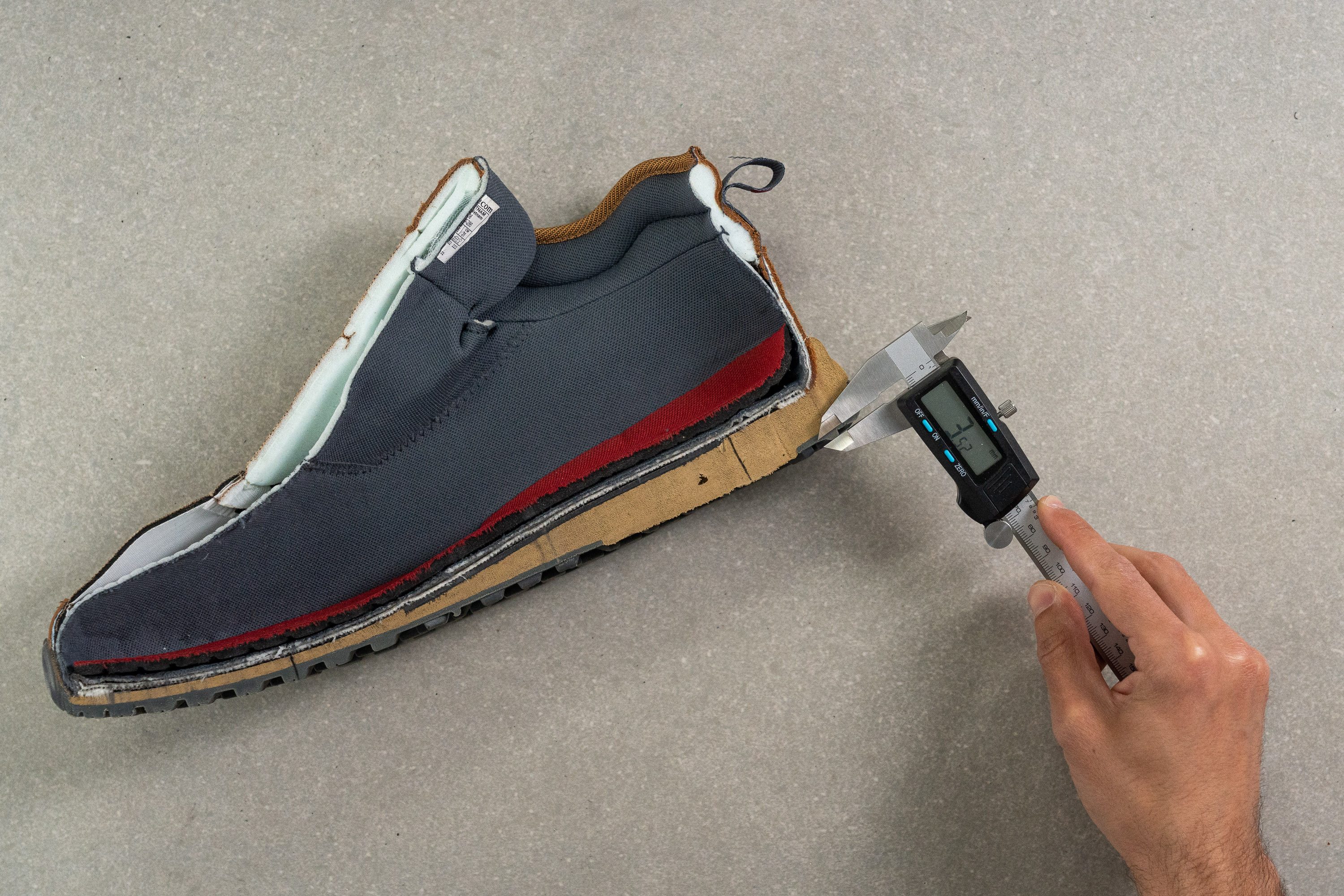
But from our experience, they still do a great job on moderate terrain and on slightly wet surfaces.
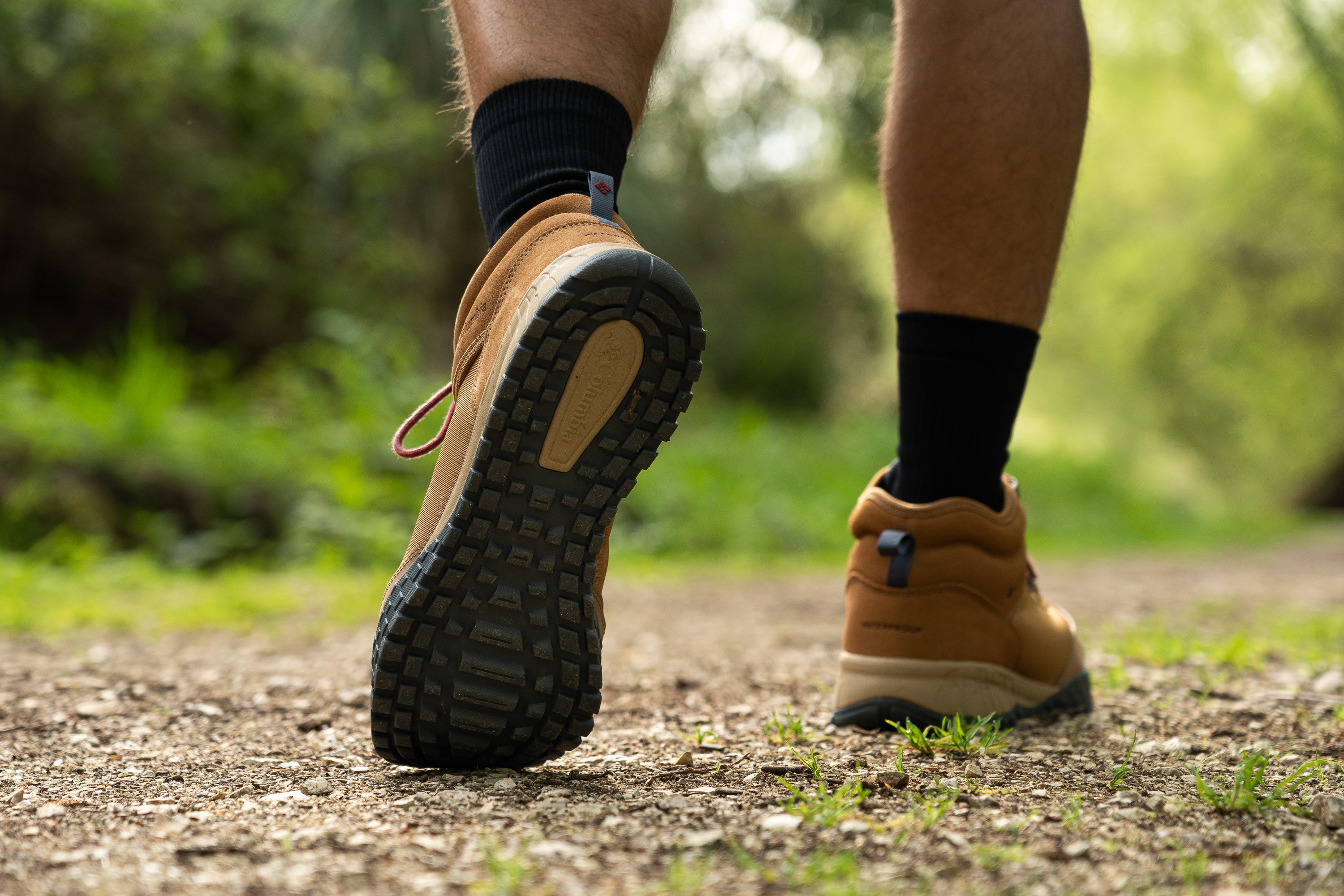
However, if you need a pair to deal with mud, mossy roots, and wet rocks, we recommend going for the more aggressive traction pattern. Like that on the Salomon X Ultra 4 Mid GTX.
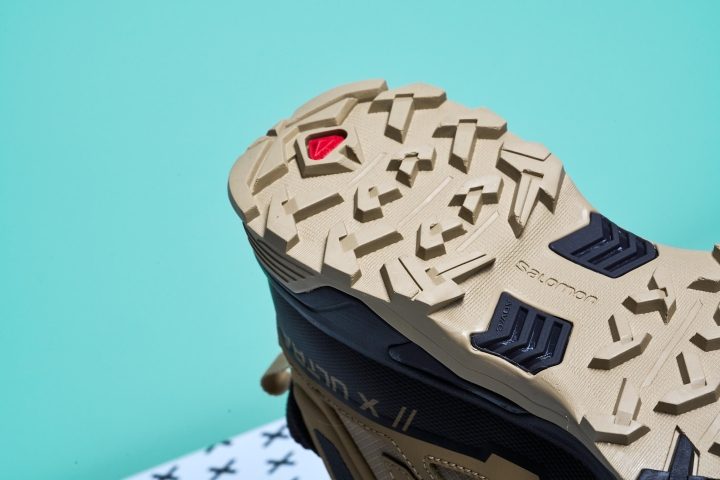
| Fairbanks Mid | 3.5 mm |
| Average | 4.3 mm |
Flexibility / Stiffness
The boot's flexibility wasn't a big surprise given its lack of stability and support.
According to our force gauge, it took as little as 14.3N to bend the boot to a 30-degree angle. That's over 50% less than it takes a typical hiking boot!
Of course, it makes this Columbia boot feel more like a sneaker on the trail as it bends easily along with your foot. This made us even more convinced that the Fairbanks Mid is just a high-rise outdoor sneaker.
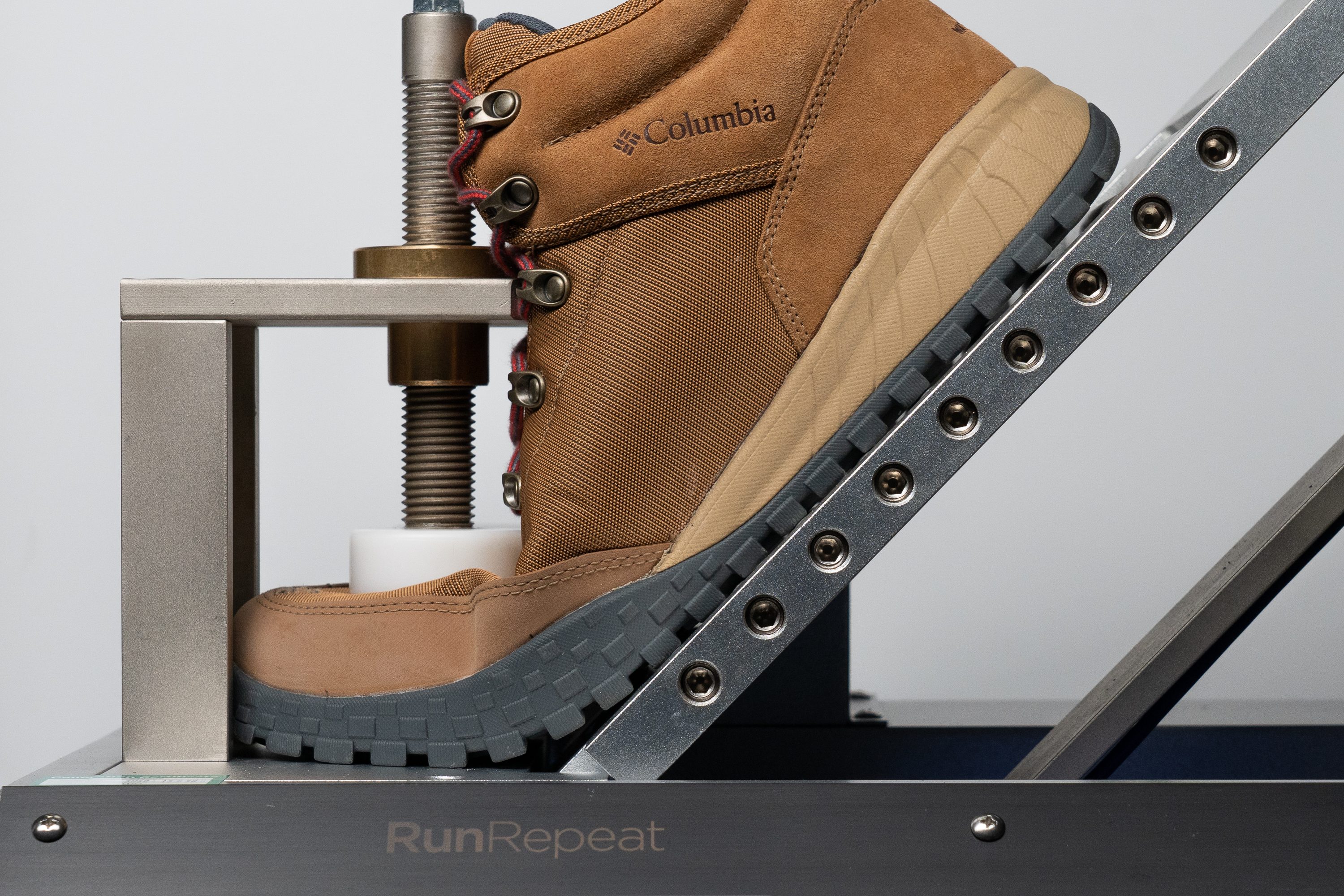
| Fairbanks Mid | 14.3N |
| Average | 31.5N |
Weight
Putting the boot on for the first time, we were pleasantly surprised with how light it felt on the foot.
Placing the boot back on the scale, we found that it weighs 15 oz (425g) in a men's US size 9. That's incredibly lightweight given that waterproof hiking boots on average weigh a whopping 20 oz (568g)!
| Fairbanks Mid | 18.0 oz (509g) |
| Average | 18.7 oz (531g) |
Breathability
The waterproofing appears to be quite effective in the Columbia Fairbanks Mid. It completely eliminates breathability in the upper!
We used a smoke-pumping machine to test how permeable the boot's textile is. As you can see from the video below, the smoke is only able to escape through the gaps at the very top of the collar. Thus, we rated the breathability of this Columbia boot as low as 1 out of 5.
In our follow-up transparency test, we put the boot's upper against the light. It is clear that there are no extra perforations or ventilation holes on the boot.
Lastly, we had a look at the textile up close through a microscope.
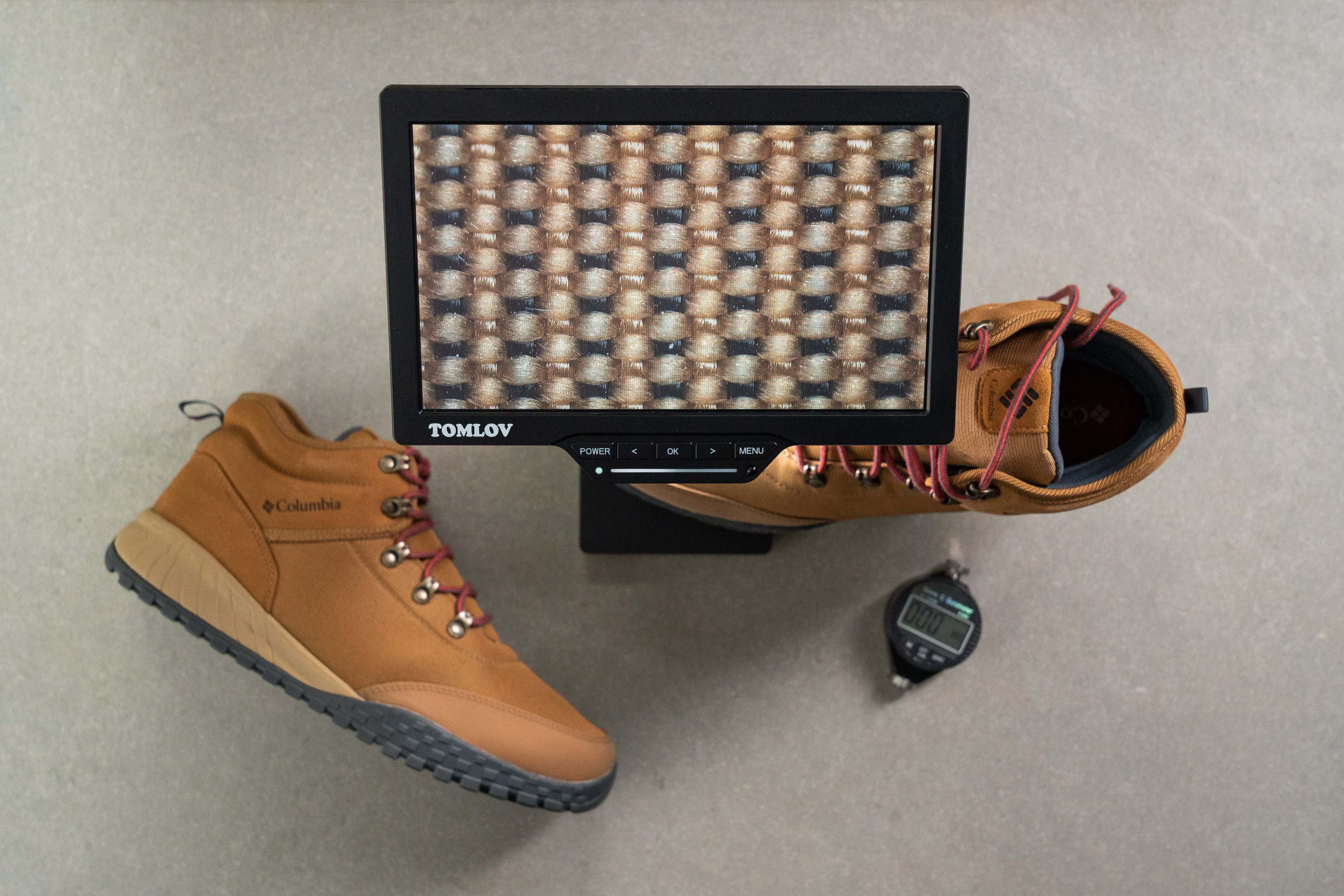
Being so incredibly densely woven, neither water nor air has a chance to pass through.
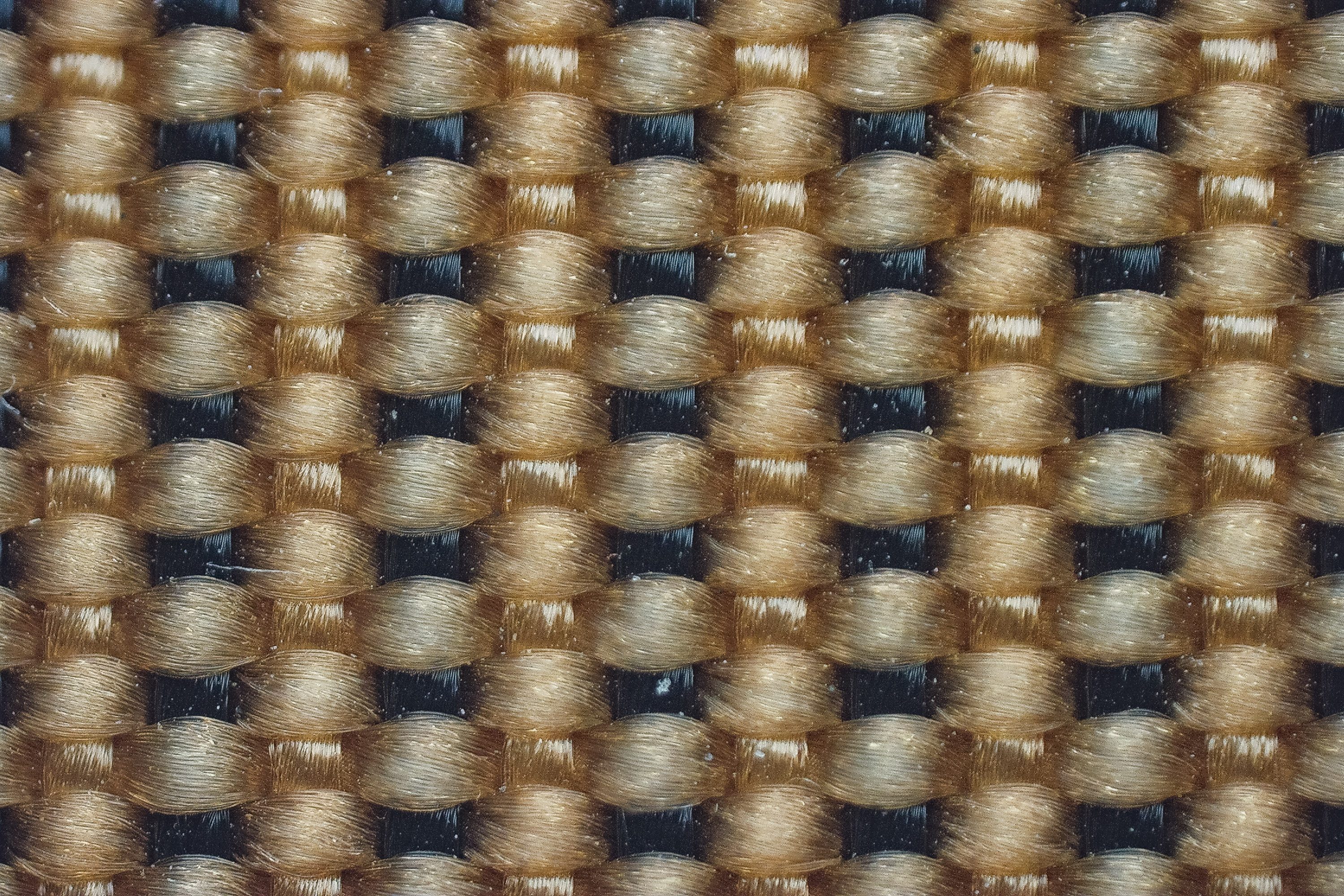
| Fairbanks Mid | 1 |
| Average | 1.3 |
Stability
Torsional rigidity
The Columbia Fairbanks Mid is the exact opposite of a stable and supportive hiking boot.
Our manual assessment of the boot's pliability showed that it has little-to-no torsional rigidity. On a 1-5 scale where 5 is the stiffest we only gave it a 2!
In addition to the boot's soft cushioning, we think that it's a disaster formula for flat feet and/or overpronation.
| Fairbanks Mid | 2 |
| Average | 4.4 |
Heel counter stiffness
The heel counter turned out to be a problem too. Squeezing and pushing it revealed how floppy this part of the upper is! We gave it a low stiffness rating of 2 out of 5 as well.
Given these findings, we do believe that the Fairbanks Mid is more of a mid-cut hiking-inspired sneaker rather than a proper hiking boot because of its lack of stiffness and structure.
But if you're someone who goes on light hikes and doesn't rely on strong ankle support, this may be fine by you.
| Fairbanks Mid | 2 |
| Average | 3.6 |
Durability
Outsole hardness
Columbia chose a super hard rubber compound for the Fairbanks Mid's outsole. Pressing our durometer against it returned 89.4 HC. This is a few points harder than the average of our lab-tested hiking boots.
This is a really good sign as we have found harder outsoles to last longer.
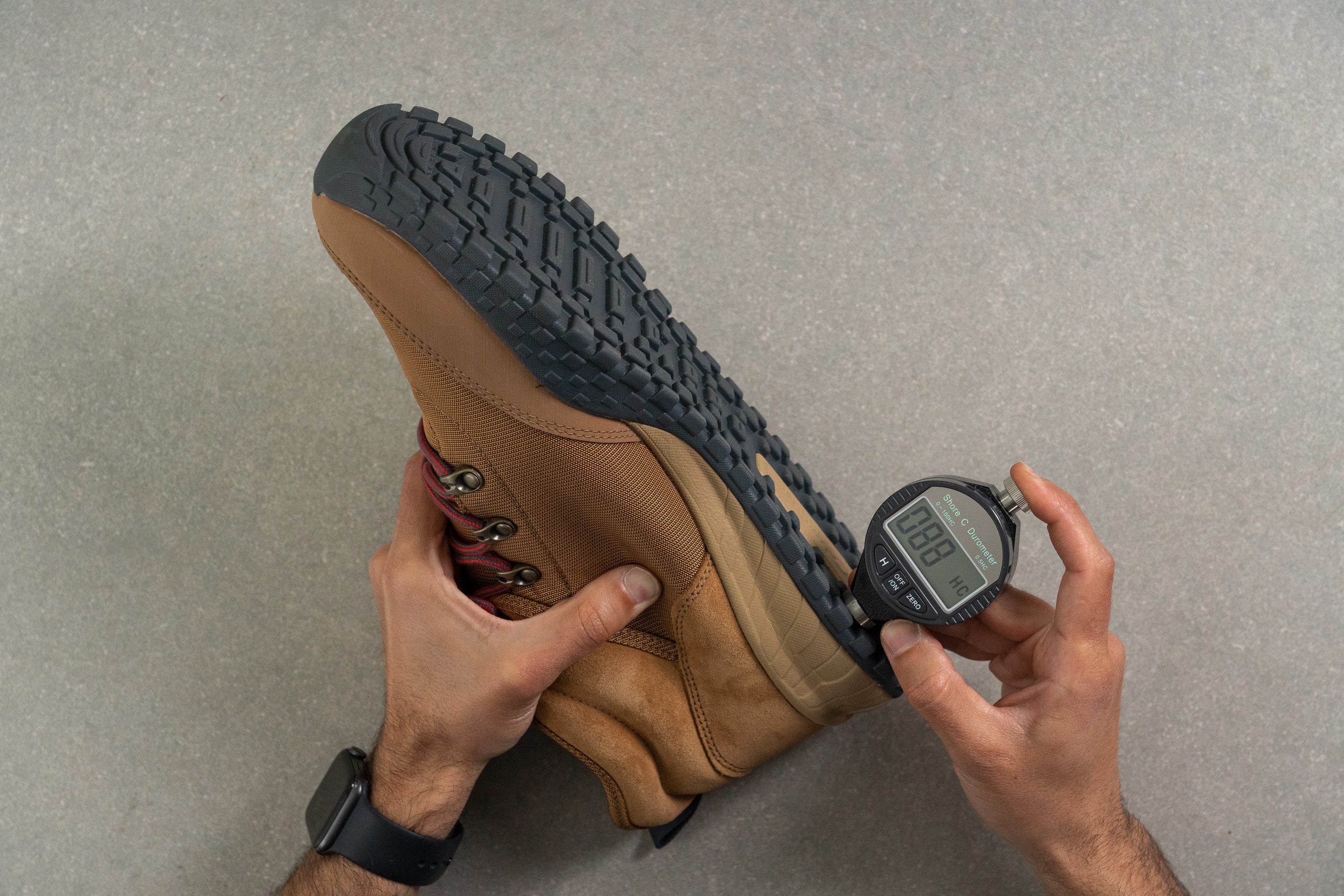
| Fairbanks Mid | 89.4 HC |
| Average | 87.1 HC |
Outsole thickness
The outsole itself is of average thickness in this Columbia boot. Excluding the lugs, our caliper shows a 2.6-mm layer of rubber underfoot.
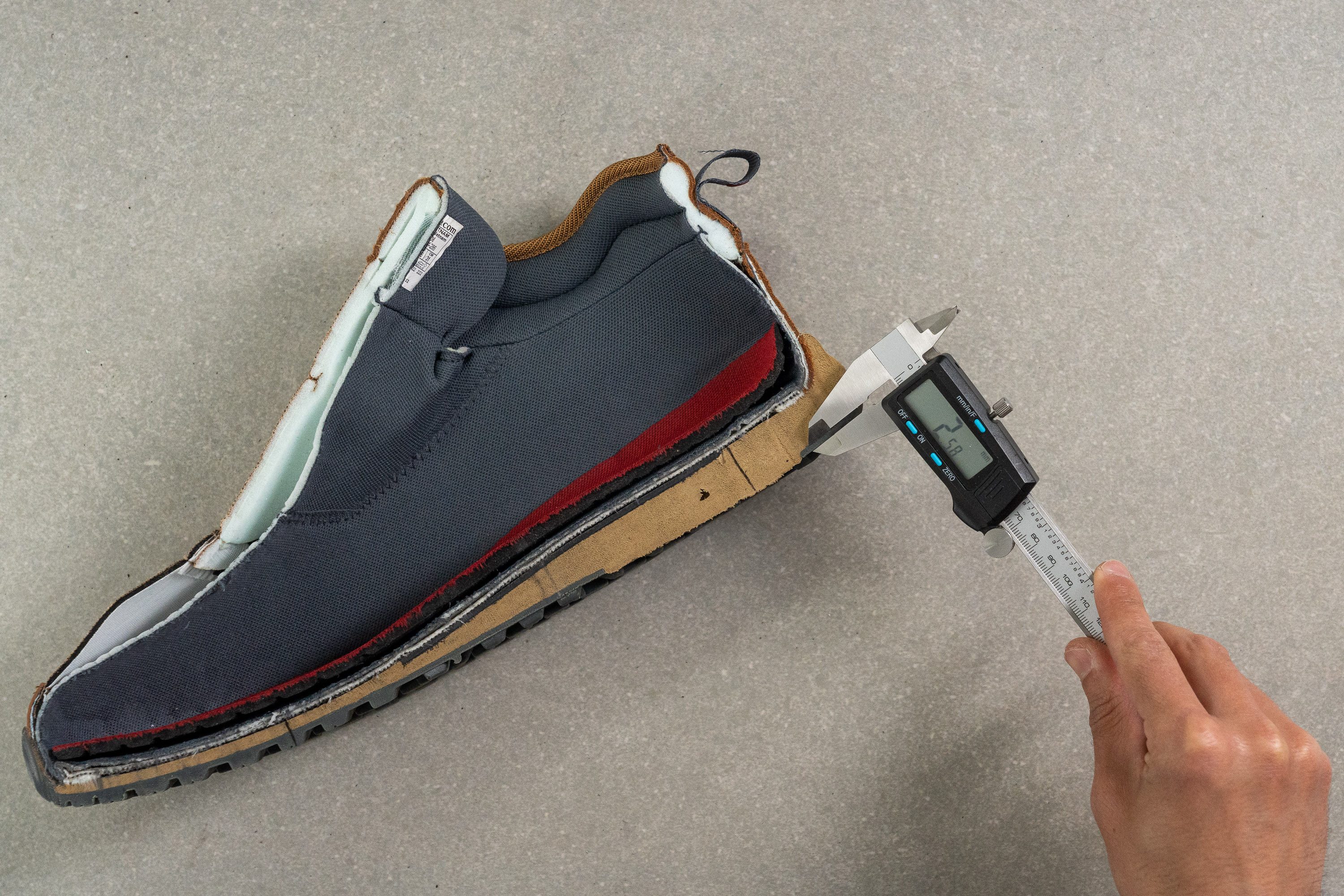
| Fairbanks Mid | 2.6 mm |
| Average | 2.9 mm |
Misc
Insole thickness
A finishing touch in the boot's cushioning is the insole. We measured its thickness at 5.6 mm which is only about a millimeter thinner than average.
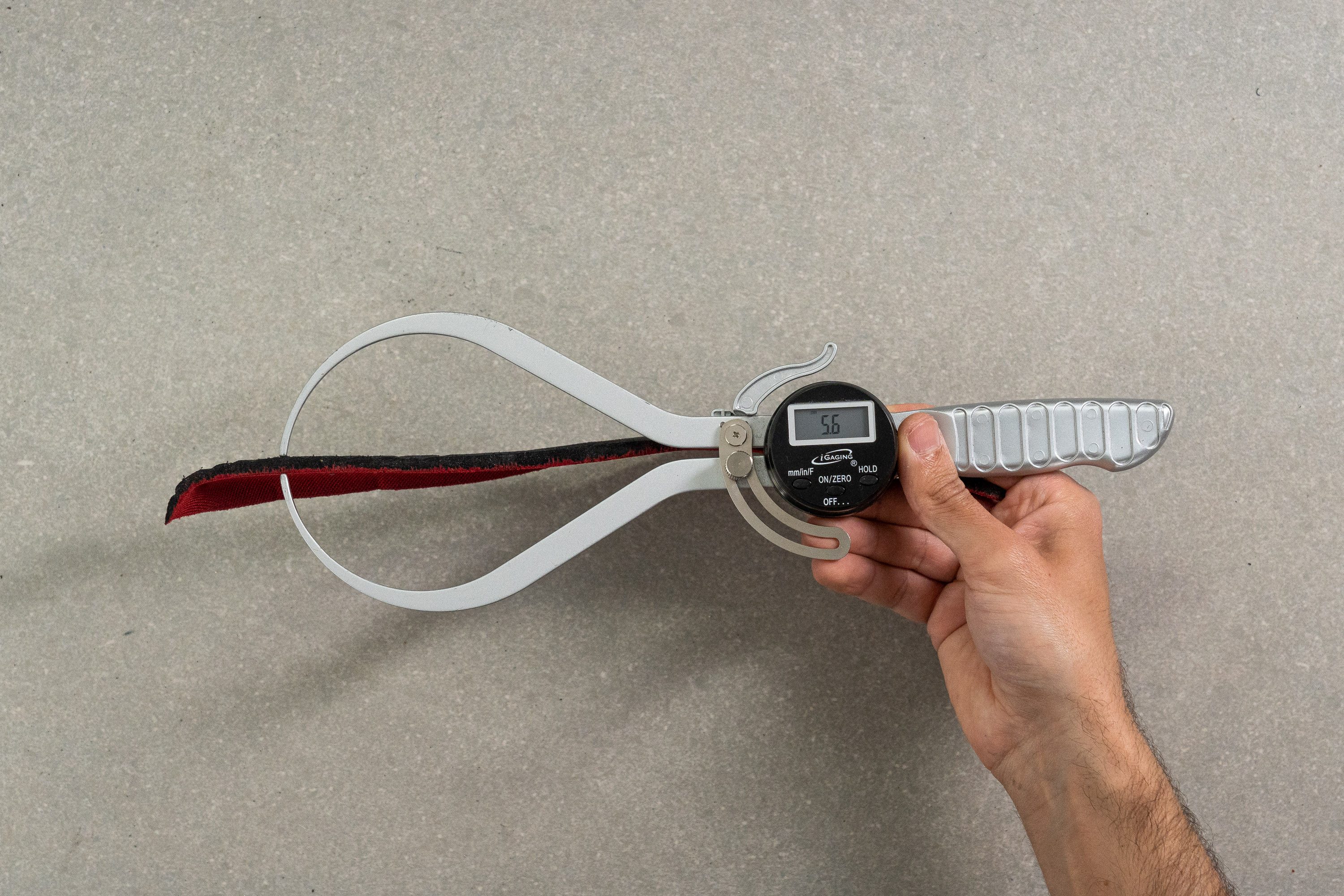
| Fairbanks Mid | 5.6 mm |
| Average | 6.0 mm |
Removable insole
For those who need customized support on the trail, the boot's insole is easily removable to accommodate any custom insert.
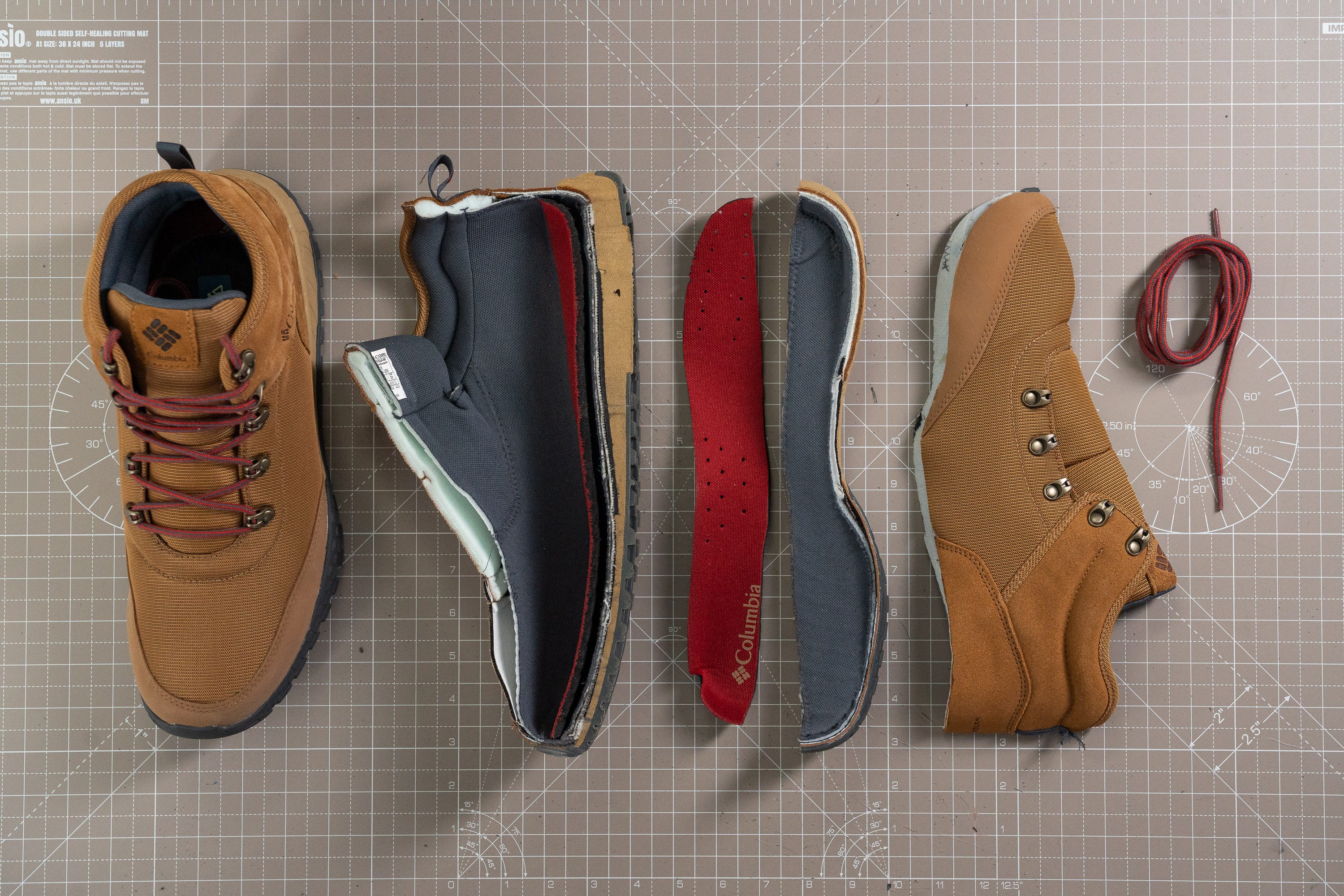
| Fairbanks Mid | Yes |
Midsole softness in cold (%)
However, if you are picking this Columbia boot for winter or as a three-season boot, be prepared that the softness will reduce!
To mimic cold weather, we kept the boot in the freezer for 20 minutes. After that, we repeated the durometer measurement and it now showed 29.1 HA.
On the bright side, this is still 16% softer than what we saw in the other lab-tested boots.
That was quite a leap. The Fairbanks Mid's cushioning firmed up by 46.2% after this test!
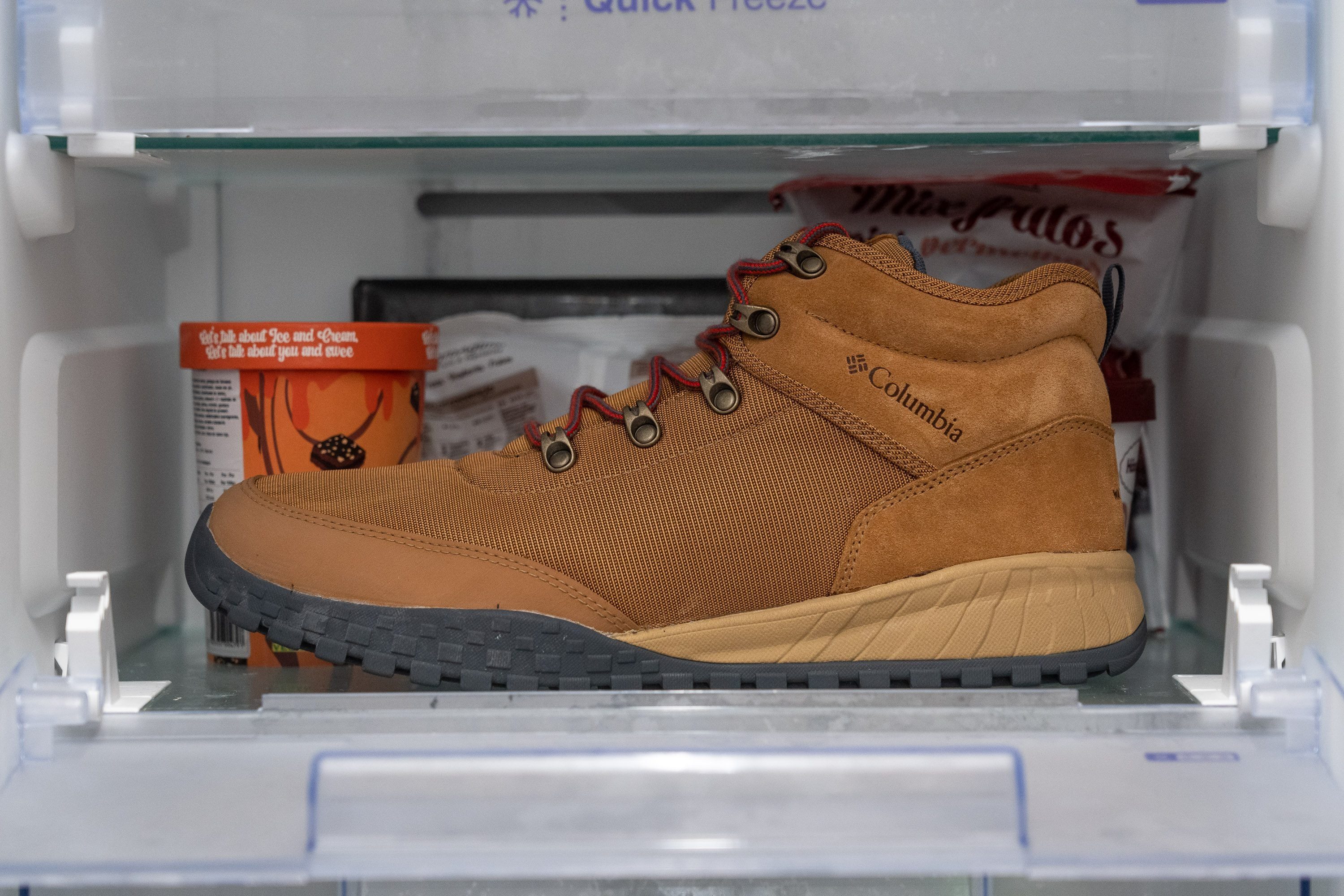
| Fairbanks Mid | 46% |
| Average | 20% |
Tongue padding
The interiors are very well-padded in the Fairbanks Mid. There is 12.1 mm of foamy padding in the tongue of the boot, about the same amount as we see in most hiking boots.
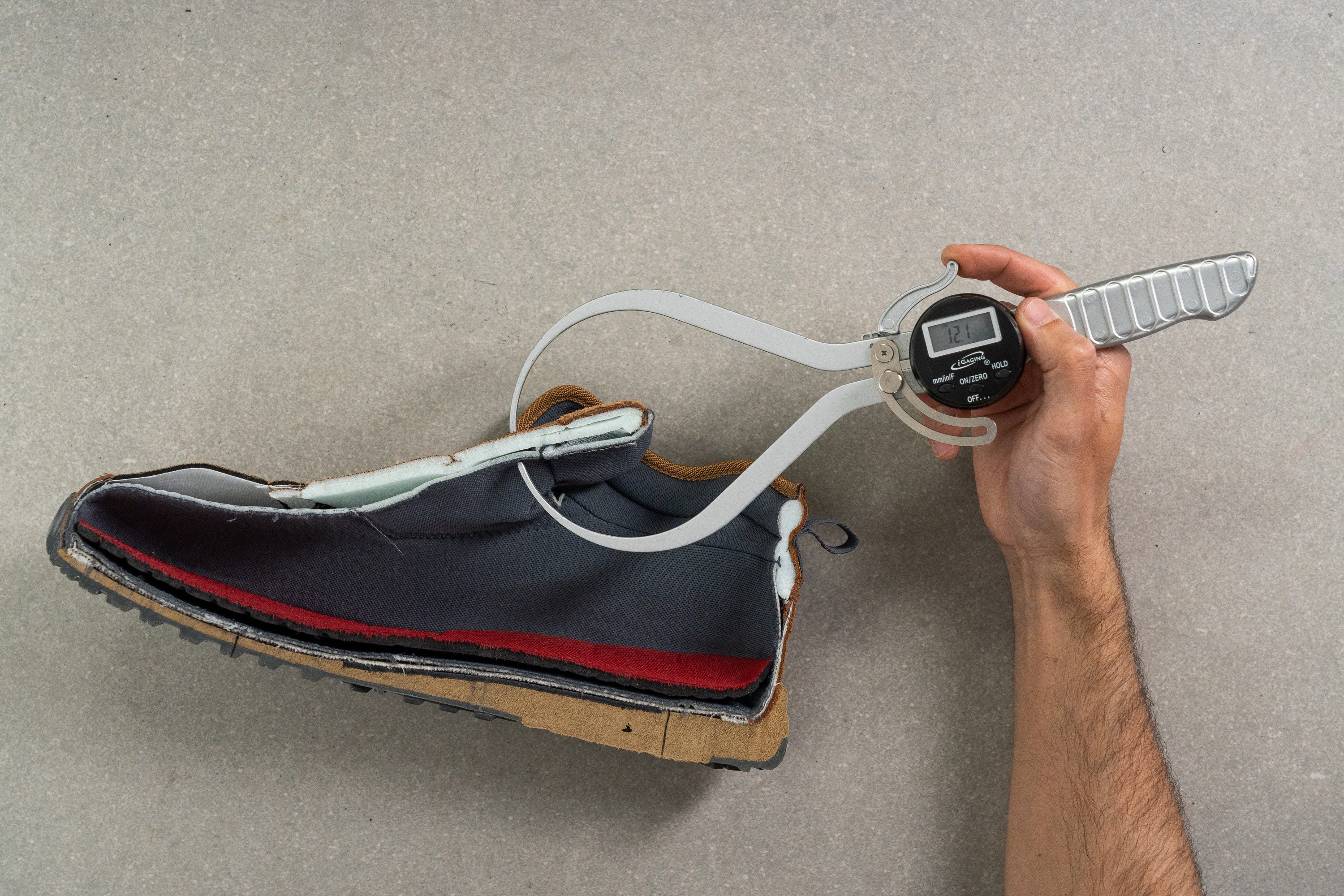
| Fairbanks Mid | 12.1 mm |
| Average | 11.2 mm |
Tongue: gusset type
The boot comes with a fully-gusseted tongue which perfectly complements its waterproofing capacities. The gussets don't let water and debris inside the boot while also creating a secure foothold.
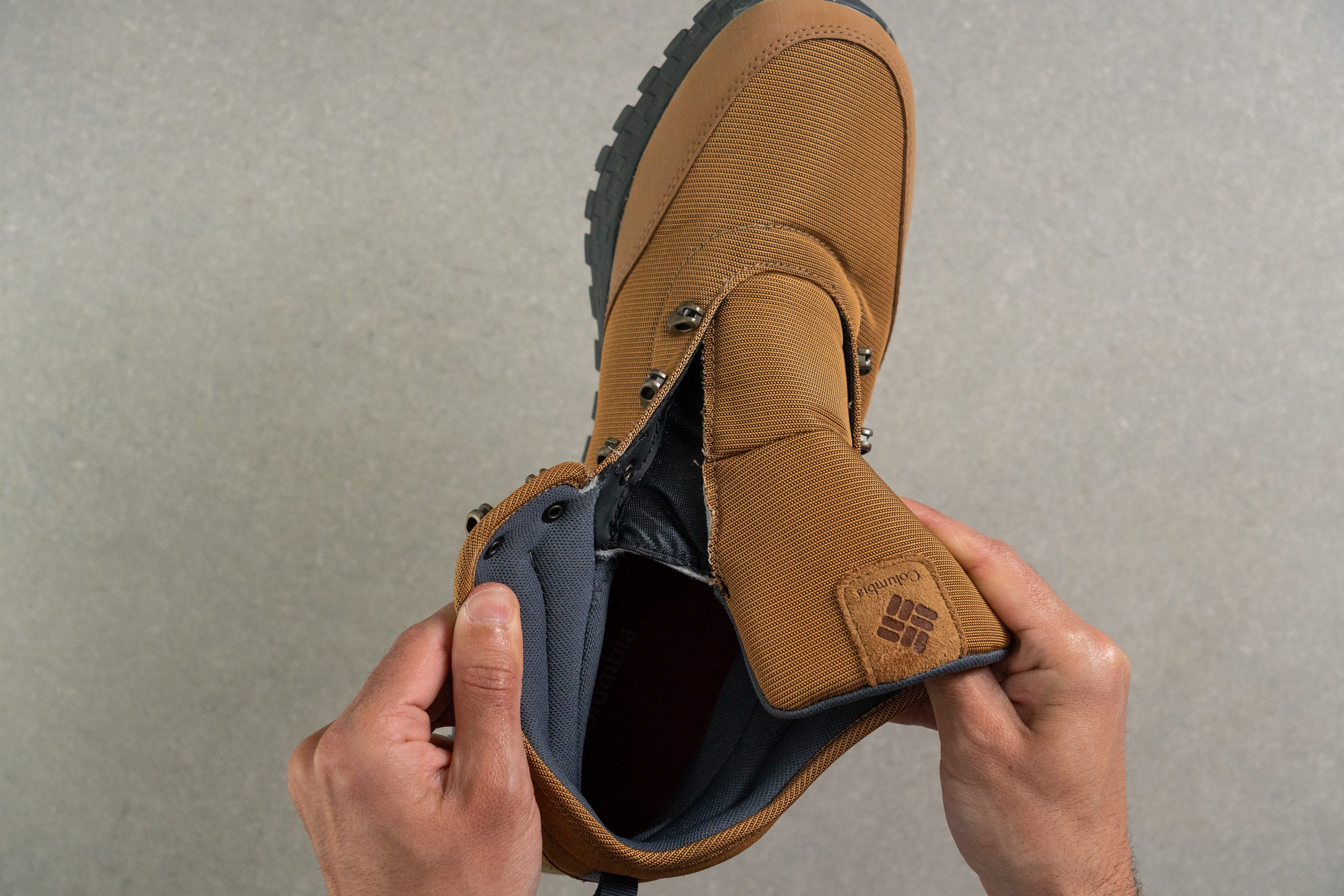
| Fairbanks Mid | Both sides (full) |
Heel tab
A finger loop at the back assists in getting the boot on. Nice and handy.
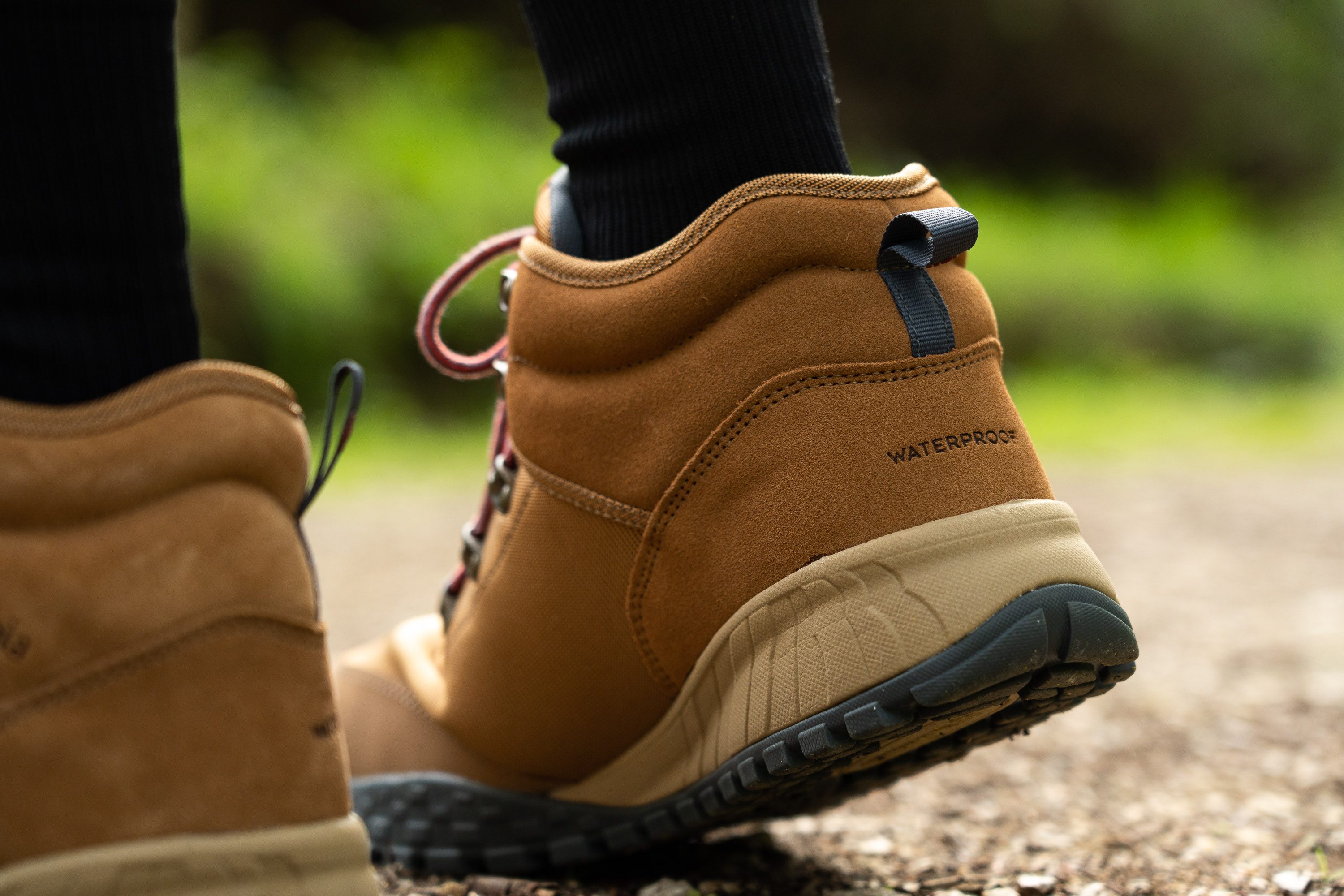
| Fairbanks Mid | Finger loop |

